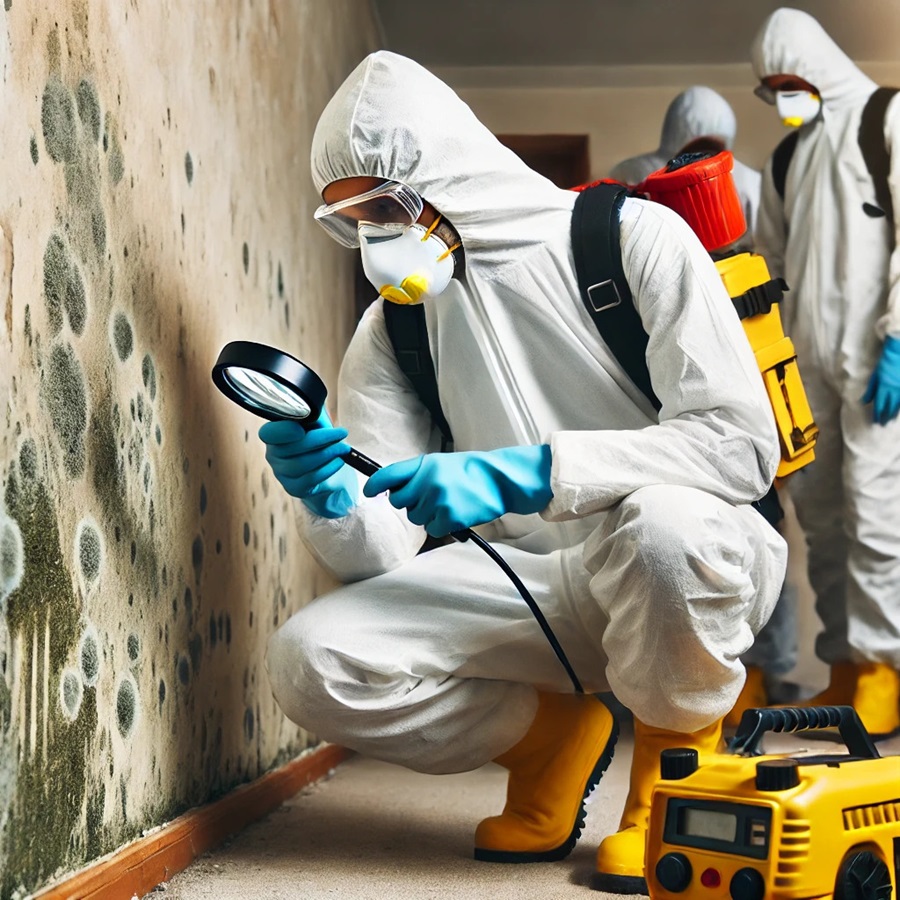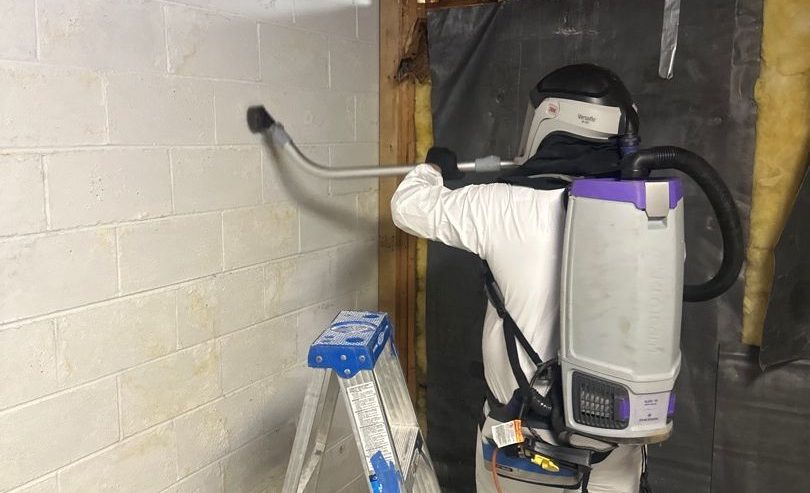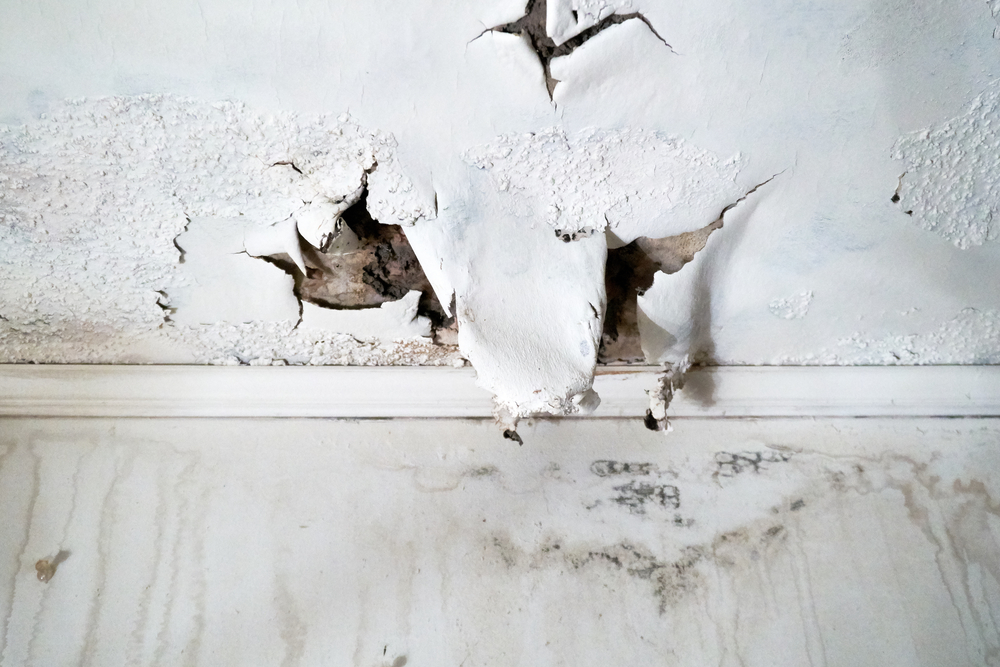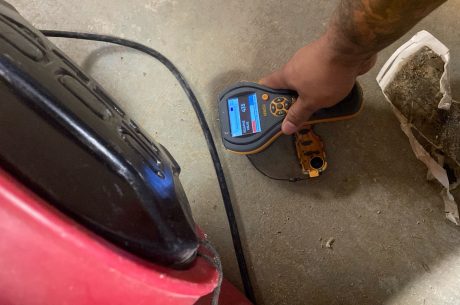Table of Contents
If you’re a Plymouth Meeting homeowner dealing with basement mold, you’re not alone. The humid Pennsylvania summers and our region’s older housing stock create perfect conditions for mold growth. Whether you’re discovering mold in your Colonial Hill home’s basement or dealing with moisture issues in a Hickory Hill property, understanding removal costs and options is crucial for protecting your investment and your family’s health.
Understanding Basement Mold Removal Costs in Plymouth Meeting
The cost to remove mold from your Plymouth Meeting basement varies significantly based on several factors. Here’s what local homeowners typically pay:
Small-Scale Remediation (Under 100 sq ft) Most Plymouth Meeting homes with minor mold issues pay between $500-$1,500. This covers isolated patches typically found around foundation cracks or near window wells.
Medium-Scale Remediation (100-300 sq ft) Expect to invest $1,500-$4,000 for moderate mold growth. This is common in Plymouth Meeting basements that have experienced sump pump failures or temporary flooding from heavy rain events like we experienced during recent tropical storm remnants.
Large-Scale Remediation (Over 300 sq ft) Extensive mold requiring whole-basement treatment typically costs $4,000-$10,000. Homes near the Plymouth Creek watershed or properties with chronic groundwater issues may face these higher costs.
Severe Infestations When mold has spread to HVAC systems, crawl spaces, and multiple floors, costs can reach $10,000-$30,000 or more. This is more common in Plymouth Meeting’s older homes that may have outdated waterproofing systems.

Why Plymouth Meeting Basements Are Prone to Mold
Our location in Montgomery County presents unique challenges:
Clay-Rich Soil: Plymouth Meeting sits on clay-heavy soil that doesn’t drain well, causing water to pool around foundations during Pennsylvania’s wet springs and summers.
Older Housing Stock: Many homes in neighborhoods like Belmont Village and Colonial Hill were built before modern waterproofing standards, making them more vulnerable to moisture intrusion.
Seasonal Weather Patterns: We experience approximately 45 inches of rainfall annually, with humid summers that can push indoor humidity above the 60% threshold where mold thrives.
Aging Infrastructure: Homes built in the 1950s-1970s often have original sump pumps, French drains, or foundation sealing that may no longer function effectively.
People Also Read : After the Fix: Preventing Mold on Bathroom Ceilings Post-Remediation
Local Moisture Issues Affecting Plymouth Meeting Homes
Basement Water Problems
Plymouth Meeting homeowners frequently encounter:
- Foundation cracks from freeze-thaw cycles during Pennsylvania winters
- Hydrostatic pressure from our high water table
- Inadequate or failed sump pump systems
- Poor grading that directs water toward foundations (common in our hillier neighborhoods)
- Clogged or insufficient gutters that can’t handle heavy rainfall
Attic Mold Concerns
Our temperature extremes create condensation issues:
- Inadequate ventilation in Cape Cod and Colonial-style homes
- Ice dam formation in winter leading to moisture intrusion
- Bathroom and kitchen exhaust fans venting directly into attic spaces
- Insufficient insulation causing warm air to rise and condense
Crawl Space Challenges
Many Plymouth Meeting split-levels and raised ranches have:
- Exposed dirt floors without proper vapor barriers
- Poor ventilation in humid summer months
- Groundwater seepage during spring thaw
- Inadequate drainage around the property perimeter
How Mold Impacts Home Values in Plymouth Meeting’s Market
In Montgomery County’s competitive real estate market, mold can significantly affect your home’s value:
Appraisal Impact: FHA appraisers servicing Plymouth Meeting must document mold presence, type, and location. Visible mold, especially black mold (Stachybotrys chartarum), can reduce appraised values by 10-25% depending on severity.
Disclosure Requirements: Pennsylvania law requires sellers to disclose known mold problems. Failure to disclose can result in legal action after closing.
Buyer Negotiations: In Plymouth Meeting’s market, buyers often request 100-150% of estimated remediation costs as credits, accounting for potential hidden damage.
Financing Obstacles: FHA and VA loans may require mold remediation before closing, which can delay transactions by 2-4 weeks.
What Professional Mold Remediation Includes
Reputable Plymouth Meeting mold remediation specialists provide:
Comprehensive Assessment: Testing to identify mold species and moisture sources using thermal imaging and moisture meters.
Containment Protocols: Setting up negative air pressure chambers to prevent spore migration to clean areas of your home.
HEPA Filtration: Industrial air scrubbers that remove 99.97% of airborne mold spores during the removal process.
Safe Removal: Proper disposal of contaminated materials following EPA guidelines.
Source Correction: Addressing the underlying moisture problem, whether it’s a foundation crack, plumbing leak, or ventilation issue.
Preventive Treatment: Application of antimicrobial solutions to prevent regrowth.
Post-Remediation Testing: Air quality testing to confirm successful removal and safe occupancy.
Documentation: Detailed reports for insurance claims, real estate transactions, or future reference.
Choosing a Mold Remediation Company in Plymouth Meeting
When selecting a local contractor, prioritize:
Certifications: Look for IICRC (Institute of Inspection, Cleaning and Restoration Certification) credentials and Pennsylvania licensing.
Experience: Companies familiar with Plymouth Meeting’s specific challenges, including our soil conditions and common home designs.
Insurance: Verify they carry both liability insurance and workers’ compensation coverage.
Written Guarantees: Reputable companies offer 1-5 year mold-free guarantees with clear terms about what triggers warranty service.
Local References: Ask for recent projects in Plymouth Meeting or nearby Conshohocken, Lafayette Hill, or Blue Bell.
Transparent Pricing: Detailed written estimates that break down labor, materials, and disposal costs.
People Also Read :
Insurance Coverage for Plymouth Meeting Homeowners
Understanding your insurance options is critical:
Standard Homeowners Policies: Most policies cover mold resulting from sudden, accidental water damage (like a burst pipe) but exclude mold from long-term neglect or flooding.
Pre-Existing Conditions: If you’re buying a home with known mold, your insurance won’t cover remediation. This is crucial for Plymouth Meeting buyers considering fixer-uppers.
Flood Insurance: Given our proximity to Plymouth Creek and occasional flooding in lower-lying areas, separate flood insurance through the National Flood Insurance Program may be wise. Note that standard flood policies don’t cover mold unless it results from covered flood damage.
Mold Endorsements: Some insurers offer optional mold coverage riders for $50-200 annually, providing $10,000-50,000 in coverage.
Documentation: Always document water damage immediately with photos and notify your insurer within 24-48 hours to maximize coverage chances.
Prevention Strategies for Plymouth Meeting Homes
Protect your investment with these local-specific tips:
Basement Waterproofing: Consider interior and exterior drainage systems. Many Plymouth Meeting homes benefit from interior French drains with sump pump backup systems.
Dehumidification: During our humid summers (often 70-80% humidity), run a 50-70 pint dehumidifier in your basement to maintain 30-50% relative humidity.
Grading Improvements: Ensure soil slopes away from your foundation at a 6-inch drop over 10 feet. This is especially important in Plymouth Meeting’s hillier neighborhoods.
Gutter Maintenance: Clean gutters quarterly and ensure downspouts extend at least 6 feet from your foundation. Consider gutter guards to reduce maintenance.
Foundation Sealing: Apply quality sealants every 5-7 years, especially important for homes built before 1980.
Regular Inspections: Check your basement after heavy rains, which are increasingly common in our area. Look for water stains, musty odors, or visible moisture.
Sump Pump Maintenance: Test your sump pump quarterly and consider a battery backup system for power outages during storms.
Ventilation: Ensure bathroom and kitchen fans vent outside, not into attics or crawl spaces.
Should Plymouth Meeting Home Buyers Purchase Properties with Mold?
This depends on several personal factors:
Health Considerations: If you or family members have asthma, allergies, or immune system issues, mold exposure can be serious. Black mold produces mycotoxins that can cause respiratory problems, headaches, and fatigue.
Budget Flexibility: Can you afford both the purchase and remediation? Remember that Plymouth Meeting’s median home price is around $450,000-550,000, so factor in an additional $2,000-10,000 for typical remediation.
Timeline: Professional remediation takes 3-10 days depending on severity. Can you delay your move-in, or do you have temporary housing options?
Negotiating Power: In Plymouth Meeting’s market, mold gives you significant negotiating leverage. Sellers may reduce prices by $5,000-25,000 or more depending on the issue’s severity.
Long-Term Investment: If the underlying moisture problem is fixable (a cracked foundation rather than a permanently high water table), buying a mold-affected home at a discount can be financially smart.
Professional Assessment: Never waive the home inspection contingency. Hire a certified mold inspector independent of the remediation company for an unbiased evaluation.
Red Flags for Plymouth Meeting Property Buyers
Be especially cautious if you notice:
- Musty odors in basements, crawl spaces, or attics
- Visible discoloration on walls, floors, or ceilings
- Peeling paint or wallpaper
- Warped or cupping hardwood floors
- Condensation on windows, especially in lower levels
- Previous flooding disclosure (check FEMA flood maps for your Plymouth Meeting location)
- Efflorescence (white, chalky residue on basement walls indicating moisture)
- Rust on metal fixtures or HVAC components
Getting Started: Next Steps for Plymouth Meeting Residents
For Current Homeowners:
- Schedule a professional mold inspection if you suspect issues
- Get 3-5 written estimates from certified local remediators
- Address the moisture source immediately, even if you delay full remediation
- Review your insurance policy and consider additional coverage
- Document everything for potential insurance claims or future sale disclosures
For Home Buyers:
- Hire an independent inspector who specializes in mold detection
- Request seller disclosure documents and review carefully
- Get remediation estimates before making your final offer
- Negotiate seller concessions or price reductions based on documented costs
- Consider making remediation completion a condition of sale
Working with Plymouth Meeting’s Climate
Our Mid-Atlantic location means preparation is key:
Spring (March-May): Monitor basements during snowmelt and spring rains. This is peak season for water intrusion.
Summer (June-August): Run dehumidifiers consistently. Our humid summers create ideal mold-growing conditions.
Fall (September-November): Clean gutters before leaves accumulate and ensure proper drainage before winter.
Winter (December-February): Watch for ice dams and condensation issues, especially in attics and on windows.
The Bottom Line for Plymouth Meeting Homeowners
Basement mold removal costs in Plymouth Meeting typically range from $500 to $30,000 depending on severity, but most homeowners pay $2,000-$6,000 for professional remediation. While these costs are significant, addressing mold promptly protects your family’s health, preserves your home’s value, and prevents more expensive structural damage down the road.
Whether you’re dealing with existing mold or considering purchasing a Plymouth Meeting home with mold issues, make informed decisions based on professional assessments, comprehensive cost estimates, and realistic evaluation of your health needs and budget. With proper remediation and preventive measures, you can enjoy your Plymouth Meeting home mold-free for years to come.
Remember: When it comes to mold, DIY removal is not recommended for areas larger than 10 square feet. Professional remediation ensures complete removal, addresses underlying causes, and protects your family from exposure to potentially dangerous spores.
Protect Your Investment & Restore Your Peace of Mind
Don’t let water damage and potential mold growth overwhelm you. Contact PuroClean of Plymouth Meeting today at (484) 412-4422 for a free consultation. We’ll be there to guide you through the restoration process and ensure your property is restored quickly, safely, and efficiently.



